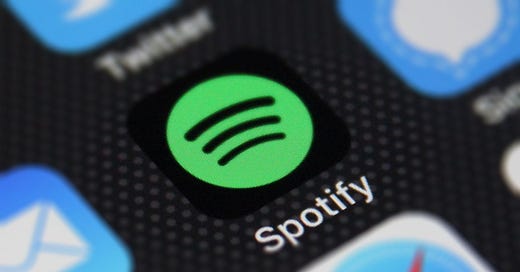The Swedish company Spotify has earned a bad reputation with musicians for good cause. As was widely reported, Taylor Swift removed her entire catalogue from Spotify in 2014. This was in protest of their history of exploiting artists by underpaying them and concealing their payment structure.
Spotify was even caught illegally engaging in "payola," the old practice of pay-for-play that many in the industry thought had disappeared from the industry.
Plus, there is a worrying new trend. Digital platforms and Spotify in particular, are surveilling their listeners while claiming in public that they are not able to illegally spy on your conversations. But now we know this is not true.
In 2021, Spotify filed a patent for an illegal unconstitutional technology: the artificial intelligence Spotify utilizes not only spies on listeners' conversations, but also conducts emotional surveillance and has the capability to manipulate the moods of listeners. This capability exists even though there is no need for such invasive unconstitutional technologies.
Why, the US Patent & Trademark Office apparently failed to ask, is a foreign company filing a patent that will spy illegally on Americans?
Singer-songwriter-activist Evan Greer, who is also Deputy Director of www.FightfortheFuture.org, wrote the song "Surveillance Capitalism," part of the album "Spotify is Surveillance," to raise awareness of Spotify's privacy violations and emotion surveillance and manipulation. Fight for the Future, a non-profit organization that fights for our digital rights, is demanding that Spotify abandon its patent.
GLOW (for LGBT listeners) & Frequency (for Black listeners)
This year in 2023, Spotify has simultaneously launched 2 new hubs, GLOW for the LGBT community, and Frequency for the Black community, ostensibly to celebrate their cultures, but also to expand their surveillance.
Objectively, in weighing the pros and cons of what Spotify offers listeners, buyer beware. The platform provides an intuitive easy-to-use experience with excellent features. But for music lovers who value their privacy and/or quality of sound coming through the ear buds, other digital platforms offer a better, less exploitative user experience.






https://worldwide.espacenet.com/patent/search/family/061711633/publication/US10891948B2?q=US10891948B2 That was not an easy question to answer. Spotify was lying, trying to say they didn't have this invasive technological capability, but I guess they finally realized all they have to do to make it legal is include it in the terms of service and get the user to agree to it.
What’s the patent number for the illegal unconstitutional technology?